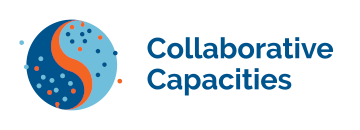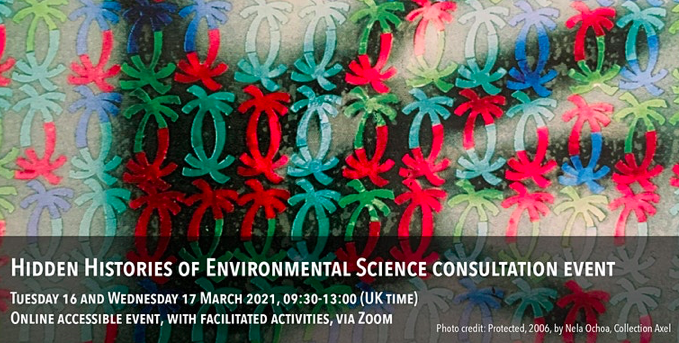The hidden histories of environmental science programme was a broad cross disciplinary effort aimed at learning from the colonial past to inform a more equitable, inclusive future for the sector.
Collaborative Capacities was recruited by the UKRI’s Arts and Humanities Research Council (AHRC) and the Natural Environment Research Council (NERC) to facilitate a two-day workshop to launch the Hidden Histories in Environmental Science programme.
This consultation event was intended to bring a diverse set of people together explore the impact of colonialism on the environmental science sector. The three main aims of the event were to
- unearth different perspectives on the challenges and opportunities of such a programme as a whole,
- build capacity and capability in researchers conducting this work, and
- create opportunities for participants to build partnerships for carrying out the work.
An anonymised recruitment process ensured that the 60 participants spanned various academic disciplines and included representatives from museums, botanic gardens, nature reserves, non-government organisations as well as the public sector. The event took place over Zoom, with our associates facilitating.
On the first day of the event, a safe, collaborative space was created where participants felt comfortable enough to share perspectives and ideas openly. We included activities where delegates compared skills sets, reward mechanisms that mattered to their line of work, and shared definitions of specialist language and terms. An ice breaker exercise encouraged dialogue among the group and set the tone for successive exercises which highlighted the cross-disciplinary diversity amongst the various professionals in attendance. To further promote impactful conversation, our facilitators ensured the consultation was participant-centric and not organisation-centric, allowing open ended questions and focusing the impact beyond the life of the programme and towards the benefits for future generations.
Conscious of screen-fatigue, there were numerous breaks, energiser interventions and we made sure we never ran over time. The whiteboard templates we created for this event were clear and immersive, adding to the flow of conversation in their own right.
At the end, we had succeeded in meeting all the aims, and resulted in participants having smooth and productive facilitated discussions around projects that might be funded through the Hidden Histories programme. In addition, they brought out a strong message for the need for more capacity building and training of academics in cross-disciplinary collaboration, with a strong emphasis (completely unprompted we hasten to add) on the need for external facilitators like us who had experience of this type of work.
These three graphs tell their own story:

A full report is available via the NERC Hidden Histories webpage.
From the client:
“This is a genius workshop structure!”
“Beautiful whiteboard templates, I was impressed how the tech did not get in the way.”
“”I was worried this would be just another sandpit exercise over Zoom, and it wasn’t.”From participants:
“The whole event was wonderfully active, thoughtfully organised, and great how we answered the
questions through acting out what a collaboration on this might look like. Thinking-in-action, which I
believe will be more impactful for participants than a straightforward feedback consultation would have been, because it modelled how we can work together with each other and communities.”“I love the warmth and light-hearted but focused event – thank you for being so welcoming and inclusive!”
“… we had meaningful knowledge exchange and generative conversations.”
“Thanks for fantastic facilitating!”

